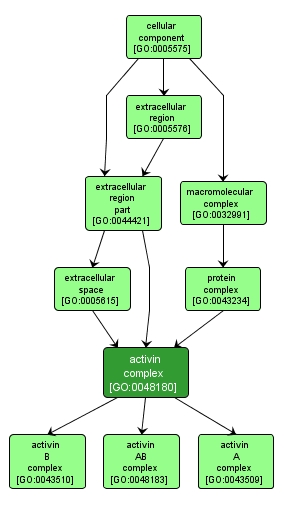| Desc: |
A nonsteroidal regulator, composed of two covalently linked inhibin beta subunits, inhibin beta-A and inhibin beta-B (sometimes known as activin beta or activin/inhibin beta). There are three forms of activin complex, activin A, which is composed of 2 inhibin beta-A subunits, activin B, which is composed of 2 inhibin beta-B subunits, and activin AB, which is composed of an inhibin beta-A and an inhibin beta-B subunit. |














